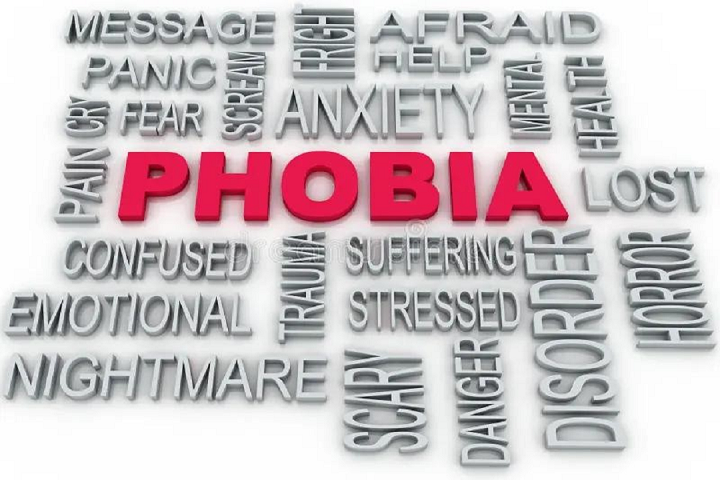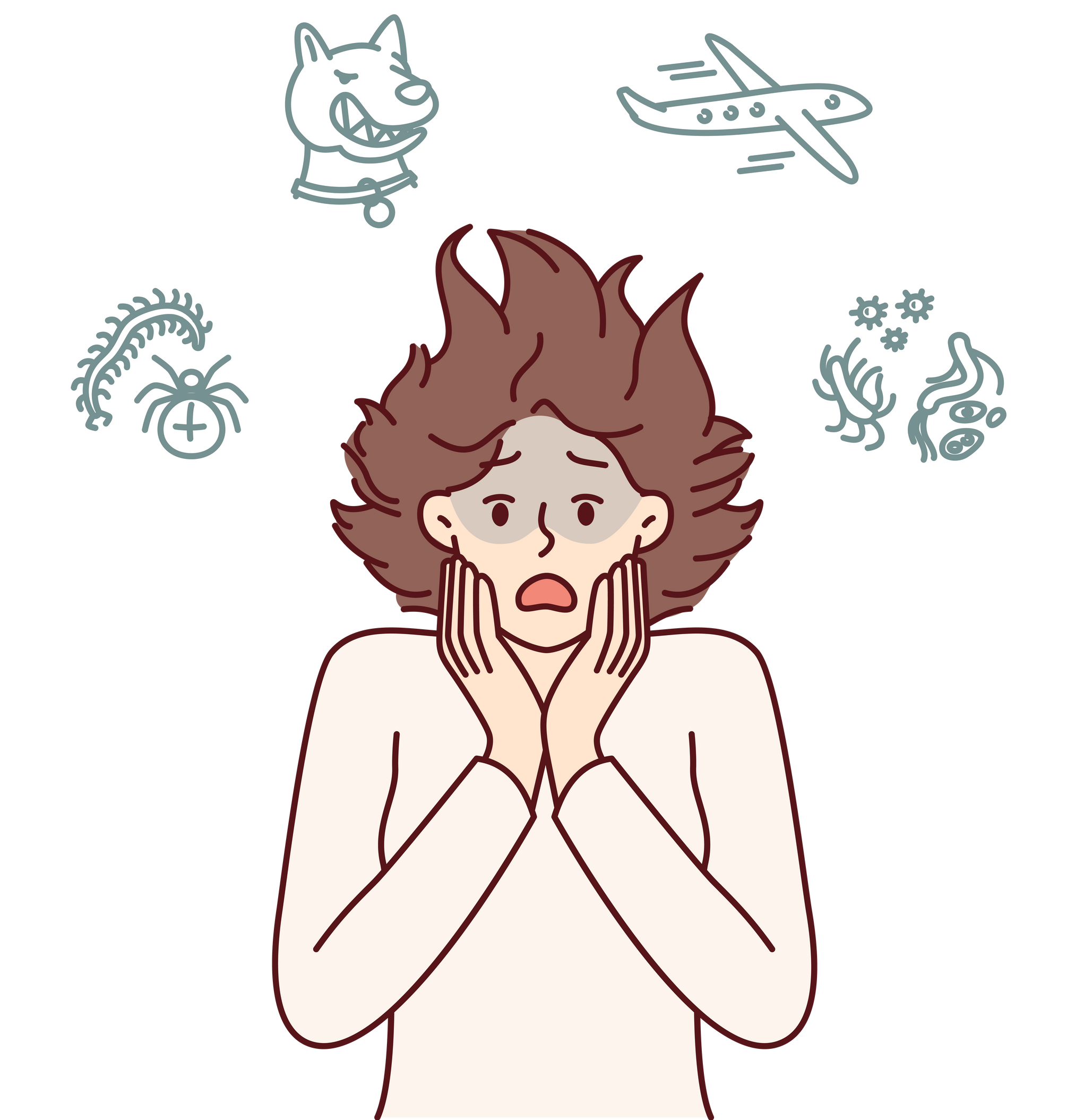- Home
- Phobic Anxiety Disorder
Phobic Anxiety Disorder
Dr. Nirzaree Parikh's Psynchronize Minds’ Phobic Anxiety Disorder and Adjustment Disorder Clinic
Under the expert guidance of Dr. Nirzaree Parikh, Psynchronize Minds offers specialized treatment and support for individuals grappling with Phobic Anxiety Disorders and Adjustment Disorders. These conditions, characterized by intense anxiety or dimculty in adjusting to significant life changes, can deeply affect one’s quality of life. Here, we delve into the nuances of these disorders, their management, and the comprehensive care provided at our clinic.

Understanding Phobic Anxiety Disorders:
Phobic Anxiety Disorders are marked by persistent, excessive fear of specific objects, situations, or activities, leading to avoidance behavior.
According to the ICD-10 classification, they include:
Agoraphobia: Fear of places or situations where escape might be dimcult
Social Phobias: Fear of social situations due to feelings of embarrassment.
Speciflc (Isolated) Phobias: Fear of specific objects or situations, such as heights or flying

Symptoms and Characteristics:
- Intense fear or anxiety triggered by specific objects or situations.
- Recognition that the fear is excessive, yet feeling powerless to control it.
- Avoidance behaviors that can disrupt daily life.
Understanding Adjustment Disorders:
Adjustment Disorders are stress-related conditions that appear as psychological responses to identifiable stressors, occurring within three months of the stressor. Types include:
With Depressed Mood: Feelings of hopelessness and sadness dominate.
With Anxiety: Nervousness, worry, and jitters are prevalent.
With Mixed Anxiety and Depressed Mood: A combination of symptoms from both categories.
Symptoms and Characteristics:
Emotional or behavioral symptoms that appear in response to a stressor. Dimculty in performing daily tasks and maintaining relationships.
Feelings of overwhelm that are disproportionate to the stressor.
Challenges Faced:
Individuals with these disorders may face challenges such as isolation due to avoidance behaviors, misunderstanding by peers, and interference with personal and professional life. Real life examples include a person with agoraphobia unable to attend family events or someone with an adjustment disorder struggling to cope with a job loss.
Tips to Manage
At home, strategies include:
Gradual exposure to feared situations.
Stress management techniques like deep breathing and mindfulness. Establishing a routine to improve adjustment.
Global Impact:
These disorders contribute to a significant public health burden, affecting productivity and increasing healthcare utilization.
When to Seek Help:
It’s crucial to seek help when symptoms persist, interfere with daily life, or cause significant distress.

Our Services:
Psychometric assessments are psychological tests used to measure mental functions and behavioral responses. They play a crucial role in diagnosing and understanding various psychological disorders, including phobic anxiety disorders and adjustment disorders. Here’s a point-wise comparison of different psychometric assessments used for these conditions:
Phobic Anxiety Disorders:
- BeckAnxiety Inventory (BAI): Specifically designed to distinguish anxiety from depression, it’s useful in identifying the intensity of anxiety in patients with phobic disorders.
- FearSurvey Schedule (FSS): Helps in identifying specific fears and the severity of a phobic It covers a wide range of common phobias.
- SocialPhobia Inventory (SPIN): A self-rated scale focusing on fear, avoidance, and physiological discomfort in social situations, ideal for diagnosing social anxiety disorder.
- Liebowitz Social Anxiety Scale (LSAS): Assesses the range of socialinteraction and performance situations to gauge the severity of social
- Panicand Agoraphobia Scale (PAS): Specifically designed for assessment of panic disorder with or without agoraphobia, evaluating the frequency and severity of panic attacks and agoraphobia.
Adjustment Disorders:
- Adjustment Disorder New Module (ADNM): A structured interview that assessessymptoms, impairment, and distress associated with adjustment disorders.
- The Stress Response Inventory (SRI): Evaluates the emotional, somatic, and cognitiveresponses to stressful life events, useful in diagnosing adjustment
- TheAdjustment Disorder Scale (ADS): A questionnaire that measures depressive symptoms, anxiety, and behavioral problems associated with adjustment disorder.
- TheLife Experience Survey (LES): Assesses the impact of life stressors and the individual’s adaptation, providing insights into adjustment disorders.
- Hamilton Anxiety Rating Scale (HAM-A): While primarily used for assessing anxiety,it’s also useful in evaluating the anxiety component in adjustment

Why Dr. Nirzaree Parikh?
Choosing Dr. Parikh and our clinic ensures access to compassionate, evidence- based care. Her expertise and holistic approach enable personalized treatment plans for every individual, fostering recovery and resilience.
At Psynchronize Minds, we are committed to guiding our clients toward a life not defined by fear or stress but by well-being and fulfillment. Reach out to us to begin your journey toward healing.
